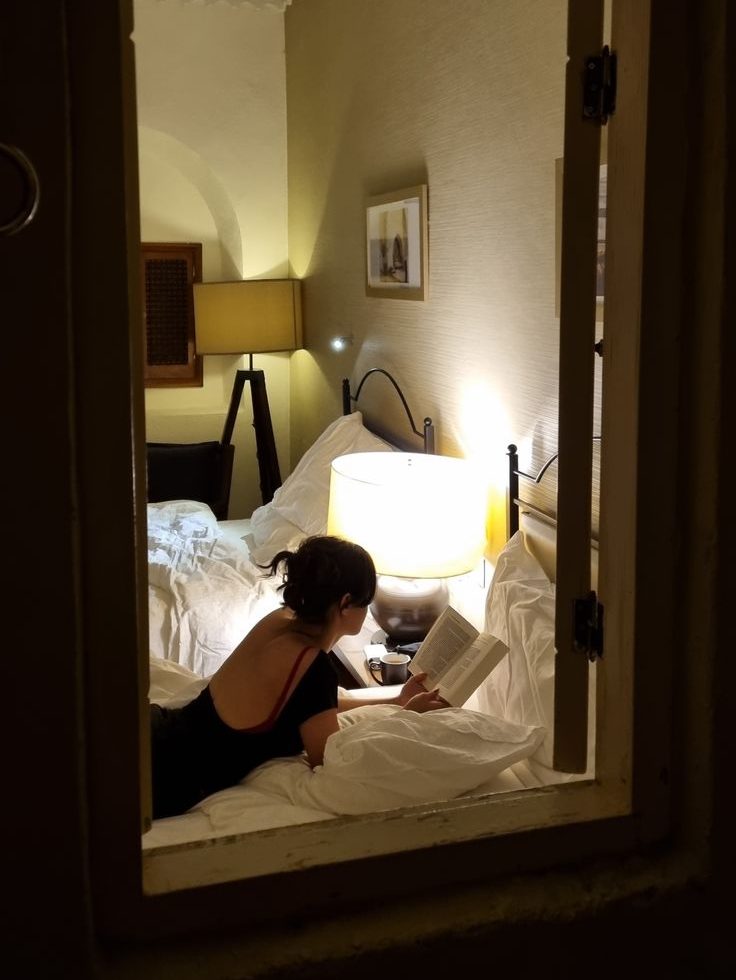
For years, I battled relentless insomnia that seemed like it would never end—as if all my life I would have sleepless nights. After about a year of trial and error, I finally found ways to overcome it by focusing on improving my overall health and well-being.
But even now, I still face the occasional restless night. When that happens, these are the strategies I turn to for better sleep.
1. Spend less time on your phone and devices
In this day and age, we are so addicted to stimulation and electronic devices. The biggest tip I can give you is less screen time at night. Constantly overstimulating your brain with endless scrolling and frequent bursts of content makes it harder for your mind to wind down and fully relax, which is essential for a good night’s sleep.
2. Journaling & Reading
Dedicating your time before bed for actual journaling and reading is beneficial to transition into a calmer state. Journaling helps you process your thoughts, clear any mental clutter, and release stress from the day. Reading a physical book with a warm lighting also soothes your mind while also entertaining you before bed.
3. Deep Breathing Meditation
Using a guided mediation or the 4-7-8 practice is able go slow your heart rate, reduce stress, and tells your brain that it is time to unwind. Deep breathing can help ease tension and quiet any racing thoughts.
4. Red Light Filter on Phone
If you still like going on your phone before bed, I suggest turning on a red-light filter on your phone. Constant blue light exposure can disrupt your body’s natural sleep signals, meanwhile red light actually sends signals to your brain to release melatonin (sleep hormone).
5. Salt Lamp or Candles Lighting
Being in a room with soft, ambient lighting helps your brain associate the environment with relaxation and winding down. Plus it also adds a cozy, warming vibe to your bedroom.
6. Listening to White Noise, Tibetan Gongs, or Frequencies
Sound therapy can be a powerful way to relax your mind and body before bed. White noise helps drown out distractions, while Tibetan gongs and specific frequencies, such as 432 Hz or 528 Hz, are believed to promote deep relaxation and restorative sleep.
7. Calming Yoga
Doing gentle stretches before bed can release any physical tension you have and relax your nervous system. Even staying in a couple poses for a few minutes, like Child’s Pose, Legs-Up-The-Wall, or Cat-Cow, encourage deep breathing and relaxation. Moving gently can prepare your body and mind for sleep.
8. Magnesium Bath
Taking a warm bath with magnesium salt works wonders for sleep. Magnesium helps to relax muscles, reduce stress, and improve overall sleep quality.
9. Taking Melatonin Supplements
When I had insomnia this was my go-to to help me sleep at night. Magnesium is a natural hormone released to helps you sleep at night. Taking a melatonin supplement (like gummies or drops) can help you when you struggle to sleep at night.
However, I would only take this as a last resort rather than an everyday routine, because your body could learn to stop producing melatonin if it is constantly being supplemented.
10. Emotional Release
When your mind is filled with pent-up stress and emotions your mind is not able to fully relax. By crying, journaling, or having a heartfelt conversation you are able to emotionally detox and let your mind rest and relax.
Struggling to fall asleep can feel incredibly frustrating, but I hope someone of these intentional habits at nighttime are able to make a difference and help you sleep. With time and consistency, these strategies can help build a healthier relationship with falling asleep at night.









